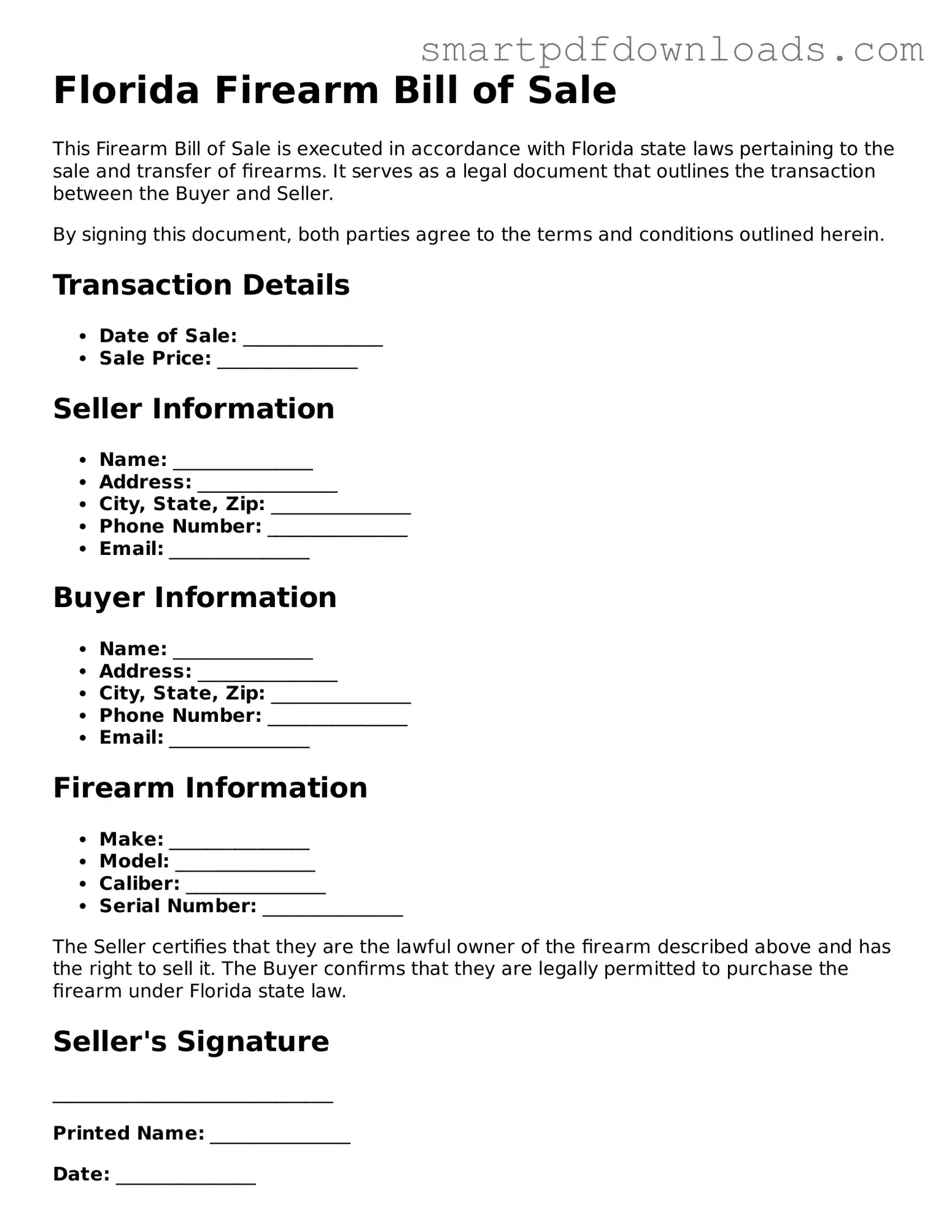Legal Firearm Bill of Sale Form for the State of Florida
The Florida Firearm Bill of Sale form is a legal document used to record the sale or transfer of a firearm between individuals. This form provides essential information about the buyer, seller, and the firearm itself, ensuring that both parties have a clear record of the transaction. Understanding this form is crucial for anyone involved in the buying or selling of firearms in Florida.
Edit Firearm Bill of Sale Online

Legal Firearm Bill of Sale Form for the State of Florida
Edit Firearm Bill of Sale Online

Edit Firearm Bill of Sale Online
or
⇓ PDF File
Finish the form and move on
Edit Firearm Bill of Sale online fast, without printing.